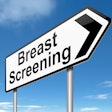
Shopping on a Saturday afternoon, the store is crowded and you're in a rush. You've found two pairs of pants. You head to the counter to complete the purchase, only to find two sales clerks talking to one another about their evening plans. Five, 10 seconds pass, they don't make eye contact with you. Fifteen seconds, 20 seconds ...
 |
| Healthcare business and legal affairs expert Mark F. Weiss. |
If you're like me, you would have waited about five seconds before abruptly interrupting their conversation. If that didn't work, you would have walked out. But that's the entire point. No matter how wonderful the store's selection and no matter how high its quality and reasonable its prices, it's often the "details" like inattentive service that make or break the experience.
But you run a radiology group, not a store, so the lesson is not 100% transferable to your world -- just 99%. If you were running a store, it would be obvious what your employees are doing, should you take the time to watch. You could see them on the floor and observe their interactions, or noninteractions, with customers.
Granted, it's a bit harder to watch your fellow partners and your employed and subcontracted radiologists and other staff members. But it is possible. And, what they are doing might just be destroying the future of your practice.
The ripple effect
It's commonly held that disgruntled customers tell stories of their poor experiences and that this results in loss of business. The Retail Customer Satisfaction Study 2006, conducted by the Wharton School of Business and the Verde Group, provides proof of this general belief.
According to the study, only 6% of customers who experienced a problem made a direct complaint. However, 31% of disgruntled customers told their friends, family, or colleagues what happened. And then those other people repeated the story, multiplying its effect. Altogether, the study found that for every 100 customers with a bad experience, a company stands to lose 32 to 36 current or potential customers.
In the retail world it's easy to identify your customer. It's a bit more complicated in yours. Radiology group "customer" interactions involve multiple interested third parties and multiple points of contact. There's the patient and sometimes the family. There's the referring physician, hospital administration, and third-party payors. And, as to each of the customers, the number of points of contact vary from the single instance to the continual stream.
Defining customer service
The first step in the solution may be the hardest: Stop kidding yourself that the delivery of expert, even world-class, medical care is sufficient to guarantee your group's future. Expertise from a radiologist is simply expected; it's the down payment on your future. Expertise must consistently be supported with extraordinary customer service to guarantee that you will thrive.
You must identify what ideal customer service is -- not through your eyes, but through the eyes of your customers. As the study discussed above reveals, you can't do this simply by relying on complaints that have been brought to your attention, as only a small percentage of disgruntled customers will have ever informed you of the problems.
Instead, my advice is that you look at each possible interaction between the members of your group and your customers and devise a set of expectations. I'm not talking about hard and fast rules for all conduct, as we're talking about professionals and, in any event, you do not want to institute robotlike performance. However, there should be minimum expectations, and those minimums should not be aimed at meeting minimum levels of customer satisfaction, but, rather, at levels of service that will delight the customer.
Next, you need to incentivize, both financially and socially, your group members to take the group's customer satisfaction expectations seriously. This means that your group's compensation plan must take into account customer service factors in determining total compensation. It also means adopting a plan for the recognition of service excellence.
If your partnership agreement and employment agreements simply reward production, providing no incentive for better customer service, then you have abandoned the legitimate right to claim to be shocked when your group's physicians rush for volume, even with an eye to absolute medical quality, but ignore the quality of customer interaction, only to have complaints, reported or unreported, destroy the foundation of your practice.
Addressing this issue in respect of your physicians is only a part of the process. You must take similar steps in respect of any support and office personnel who come into contact with any identified customers. This extends to the employees of your billing service provider -- one cranky interaction can destroy the improvement that your group, internally, has worked to achieve.
Why should you care?
Why do you need to care about customer service when your group has the exclusive contract at the hospital? After all, your customers can't go anyplace else.
Because customer service is directly related to customer satisfaction, which is directly related to support from the medical staff and from administration. That support is essential in respect of renewing your exclusive contract and in obtaining necessary financial support from the hospital.
Sure, you may be the only game in town, but if you don't pay attention to customer service, someone else will be the next only game in town.
By Mark F. Weiss
AuntMinnie.com contributing writer
November 11, 2009
Mark F. Weiss is an attorney who specializes in the business and legal issues affecting radiology and other physician groups. He holds an appointment as clinical assistant professor of anesthesiology at University of Southern California's Keck School of Medicine and practices nationally with the Advisory Law Group, a firm with offices in Los Angeles and Santa Barbara, CA. Mr. Weiss provides complimentary educational materials to our readers. Visit www.advisorylawgroup.com for his free newsletter. He can be reached by e-mail at [email protected].
Related Reading
The Profit Center: Part 8 -- Deploy the power of persuasion, October 30, 2009
The Profit Center: Part 7 -- Increase negotiating power by controlling context, September 11, 2009
The Profit Center: Part 6 -- Imaging Advantage: Much ado about the same old thing? August 18, 2009
The Profit Center: Part 5 -- Negotiating your group's stipend, July 31, 2009
The Profit Center: Part 4 -- Creating an 'experience monopoly,' July 3, 2009
Copyright © 2009 Mark F. Weiss



















